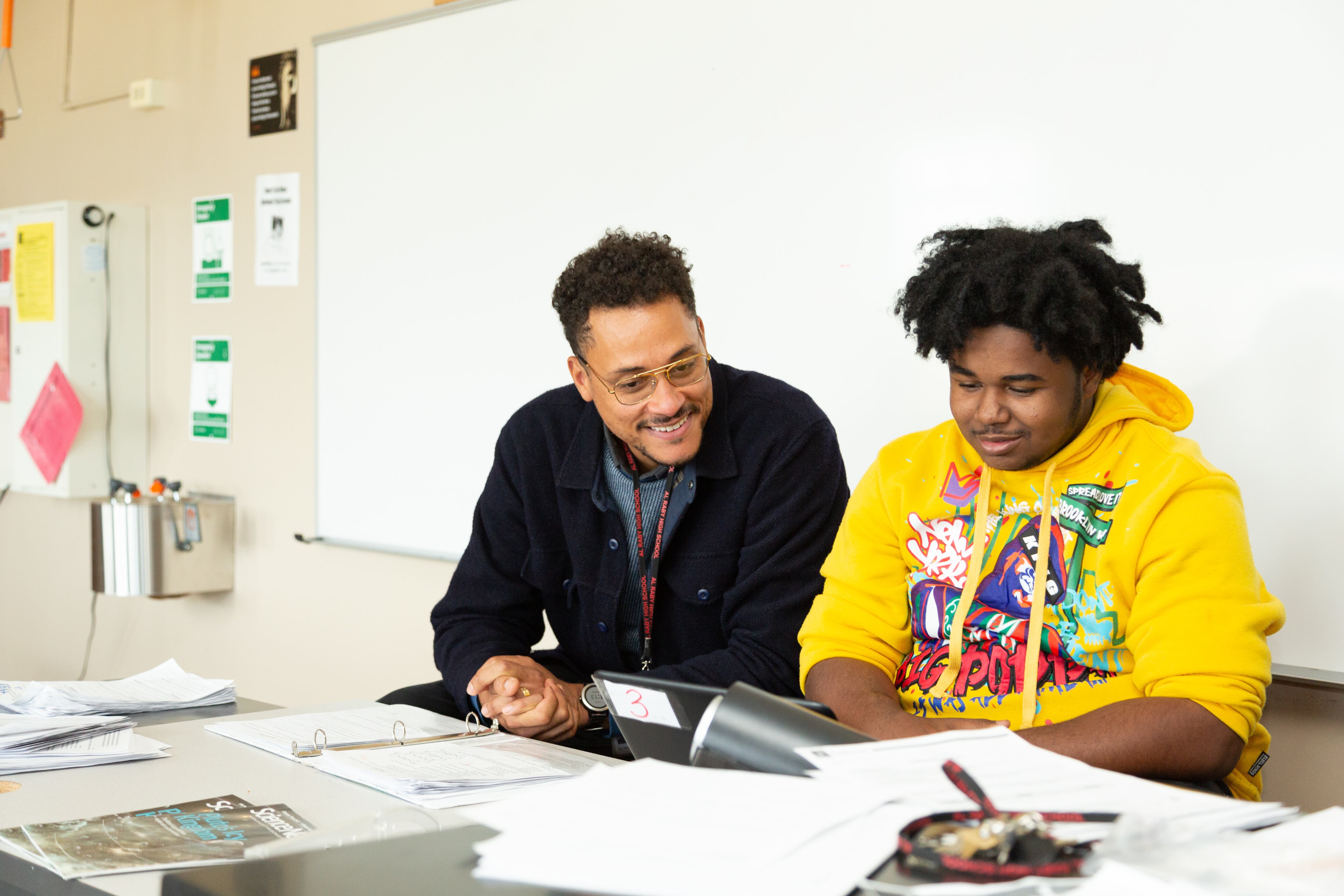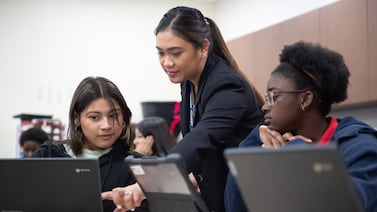Kayla Metcalf started teaching middle school science in the fall of 2020 just as the COVID pandemic upended education. Nathaniel Joseph had made a career switch from line cook to special education teacher when he was thrust into the world of remote learning. Jhaianne Cooper, now in her first year of teaching dance, is still figuring out what support her students need to succeed after a couple of school years not performing on stage.
They are just three of the hundreds of Illinois teachers who began teaching during the pandemic. These educators not only had to learn the basics of lesson plans, classroom management, and the needs of students and families, they also had to navigate a constantly changing education landscape.
Over the past three years, teachers of all experience levels had to switch between different modes of instruction — from virtual to hybrid with some students in class and others at home and then to in-person learning when classrooms finally reopened. They have also had to help students adapt to a return to the classroom, learn again how to socialize with their peers, deal with mental health, and handle concerns around COVID-19.
It hasn’t been easy. Some teachers are struggling to overcome burnout, with others resigning or changing careers. Illinois has a teacher shortage and school districts around the state are struggling to attract and retain teachers.
But some novice educators are excited to head into classrooms despite the challenges. Chalkbeat Chicago spoke with five early-career teachers about going from student to professional, teaching during the coronavirus pandemic, their challenges and successes, and why they love being teachers.
Responses have been lightly edited for length and clarity.
Nathaniel Joseph, 38, Chicago Public Schools
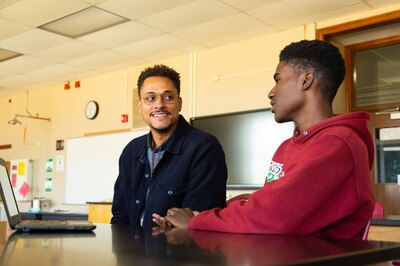
Start: Fall 2021.
High school special education teacher at Al Raby High School.
Joseph was a line cook at different restaurants around Chicago before becoming a teacher. He said that his experience was similar to Hulu’s original show “The Bear” — a comedy-drama about a chef coming back to Chicago to work in a family-owned restaurant after working in fine dining restaurants.
What was it like to go back to in-person learning and teaching in your own classroom? What were you feeling?
I think mostly excited because it’s a huge step in a new direction for me, coming from a totally different field. There’s always going to be nerves working with young people. You just don’t know what to expect. But I felt really supported by other teachers. There’s a mix of young teachers who have a lot of experience and older teachers who’ve been at the school for a while. I felt like I was entering a situation where people had a lot of experience and support. It felt like being welcomed into a family. So a lot of those nerves subsided. Within the first couple weeks, and obviously with how present the pandemic was last school year, there was a lot of emphasis on taking things slow and not feeling like we’re going to catch up on everything we missed on day one. My principal kept saying give each other grace and don’t feel like you have to solve it today. This is a long process. So I felt really good.
What were some challenges that your students faced when coming back to school?
Last year there were so many different protocols in place for health and safety because of COVID-19. Certain things just kind of shut down. For instance, there was a school store where students could buy snacks and get stuff after school and even during lunch. That hasn’t been opened since I’ve worked here. The kids will wax poetic about it like, “The school’s store was almost like a candy shop.” It was a part of the school’s fabric. I feel like a lot of those unique things that schools have, at least at my school, haven’t started back up.
Kayla Metcalf, 26, Horizon Science Academy McKinley Park
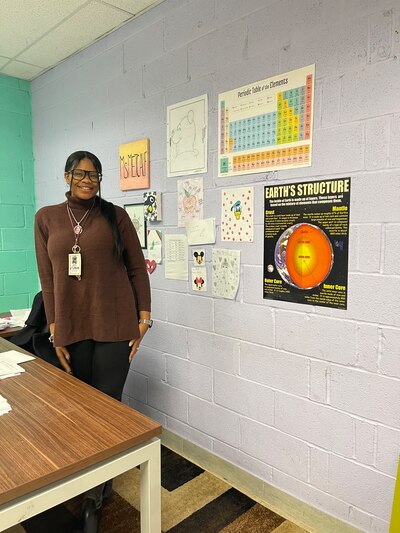
Start: Fall 2020.
Seventh and eighth grade science teacher at Horizon Science Academy McKinley Park in Chicago.
Metcalf comes from a family of teachers. Her grandmother and dad were educators. At first she pursued a degree in microbiology to go into medicine. During the pandemic, she decided to switch to teaching. After two years in the field, she says she loves being a teacher. “I think the best part honestly is seeing how much of a difference I can make in a student’s life even if it’s just for a moment.”
How did your students respond to the COVID-19 vaccine as they were rolling out?
Teaching in a science class, a lot of students were very curious about how the vaccine worked. We all took this as a teaching moment to encourage students to go get vaccinated. The thing that caught me by surprise was that a lot of students wanted to go get vaccinated, which really surprised me. To see their own activism around vaccines really surprised me in a positive way.
What advice would you give to other early-career educators?
Take time to understand your students and their needs. If you see that a student learns one way, you should try to tailor the lesson to how they learn. I find that it helps a lot because students pay attention to teachers who put in the effort. I became a teacher to make a difference and when students see that they think “Oh, this teacher is actually trying to help me learn.” It motivates them to do better. That’s, at least, what I’m seeing.
Ashley Tyler, 38, Decatur Public Schools District 61
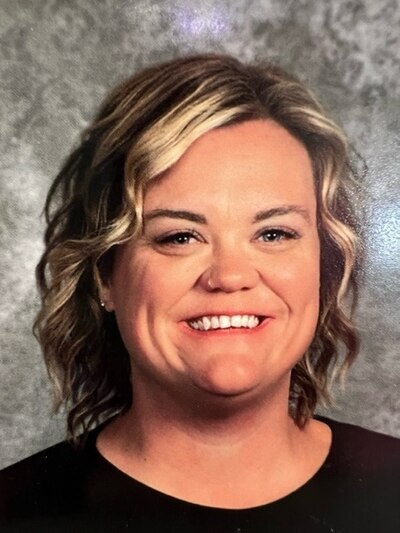
Start: Fall 2021.
Second and third grade special education teacher at Dennis Lab School.
After getting married and becoming a mother, Tyler decided to switch careers and become a teacher. She started working as a paraprofessional at her local school district and then decided to join the Golden Apple Accelerators Program to become a teacher.
What was it like to transition from student teacher to full-time educator during remote learning?
So I feel comfortable in the classroom, in this district and I love these kids and their families. I will say that teaching during a pandemic was difficult for a lot of reasons. You don’t get to build those one-on-one relationships like you do in a classroom, especially teaching special ed. Everything was over a computer. So, sometimes it was hard to read body language, expressions, and tones. So, there were a lot of challenges and a lot of growing that had to be done. But, there were also some really amazing things that happened. Teachers were in all of our students’ homes. Where parents were getting to hear us teach and getting to hear their children learn. We were building relationships with families, not just students.I think that kind of carried into my teaching in person, where I realized the importance of that relationship to teachers and families.
Once your students came back into the classroom, did you notice any skills they were missing?
My kids in second and third grade, the only time that they were in school was maybe preschool or kindergarten. They didn’t have time in those really formative education years where we’re learning the alphabet, sounds, letters, numbers. So we’re seeing a lot of students that are not even near grade level because of things they have missed.
Jhaianne Cooper, 25, Chicago Public Schools
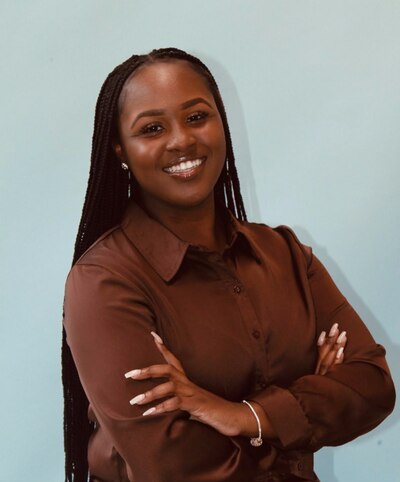
Start: Summer 2022.
Dance teacher at Hamilton Fine Arts and Performance School.
Cooper has been dancing since she was 3 years old and started teaching at dance studios during her time in high school. However, she didn’t think she would become a dance teacher. In fact, she majored in rehabilitation services and minored in dance in hopes of becoming a chiropractor.
But when the pandemic hit, she started teaching dance classes virtually and fell in love with teaching. She decided to get her master’s in education in 2021 and joined Chicago Public Schools’ Teacher Residency Program.
What has it been like to become a teacher during the coronavirus pandemic?
It has been a challenge, but beneficial at the same time. Using technology when we were virtual was beneficial in my dance classes. Right now, I’m teaching a dance media class, where we’re integrating technology in class. We’re learning how to create videos as well as doing photo shoots. Now technology is still inside of my classroom every single day.
What have been some of your challenges and successes during your first year of teaching?
It has been a challenge to create my own scope and sequence that I have for the dance program at my school. Taking the time to create and build that while being a first year teacher, it can be a lot. But you know, you just take the time to figure it out. I would say a huge success is seeing every student perform. We have 444 students and when we have a showcase to see everybody come together and perform and no one is shy, it’s always a huge success for me because they got out on stage and went for it.
Brandon Pease, 24, Elk Grove Township Community Consolidated School District 59
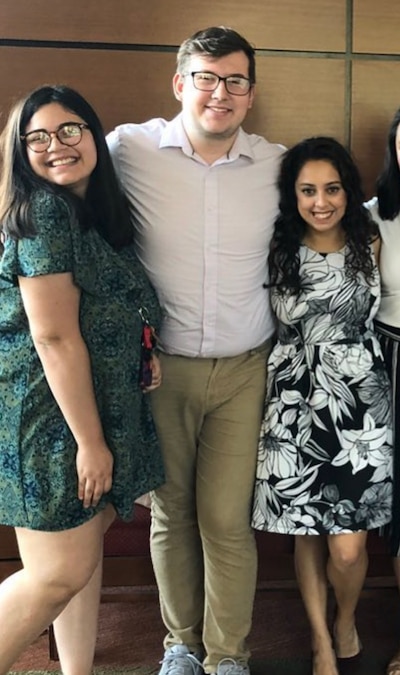
Start: Spring 2021.
Middle school math teacher at Elk Grove Junior High.
Pease always wanted to be a school teacher. He would make his friends play school in the afternoon during his childhood years, even though they were exhausted by the school day.
Since the coronavirus pandemic hit, many educators have been concerned about learning loss. Have you noticed that your students have gaps in their learning?
What I’ve noticed is that in math students have been at least three or four grade levels behind. Some students have even been five grade levels behind. Students in eighth grade are at a second grade level. Although I have to teach my seventh grade math standards, I’ve been working a lot more with building confidence in math and making sure that students are able to be comfortable with being wrong. Disrupting those thoughts that they have to get the right answer to make someone happy or “I’m supposed to do this and I’m not doing it so I’m gonna shut down and not talk to anyone.” I know that getting students confident in school again will help improve their math skills.
What advice would you give to other early-career educators?
As an early-career educator, the only advice I can really give is to get through that first year or that second year. That’s when you’re really going to learn who you are as a teacher.
Samantha Smylie is the state education reporter for Chalkbeat Chicago, covering school districts across the state, legislation, special education, and the state board of education. Contact Samantha at ssmylie@chalkbeat.org.

